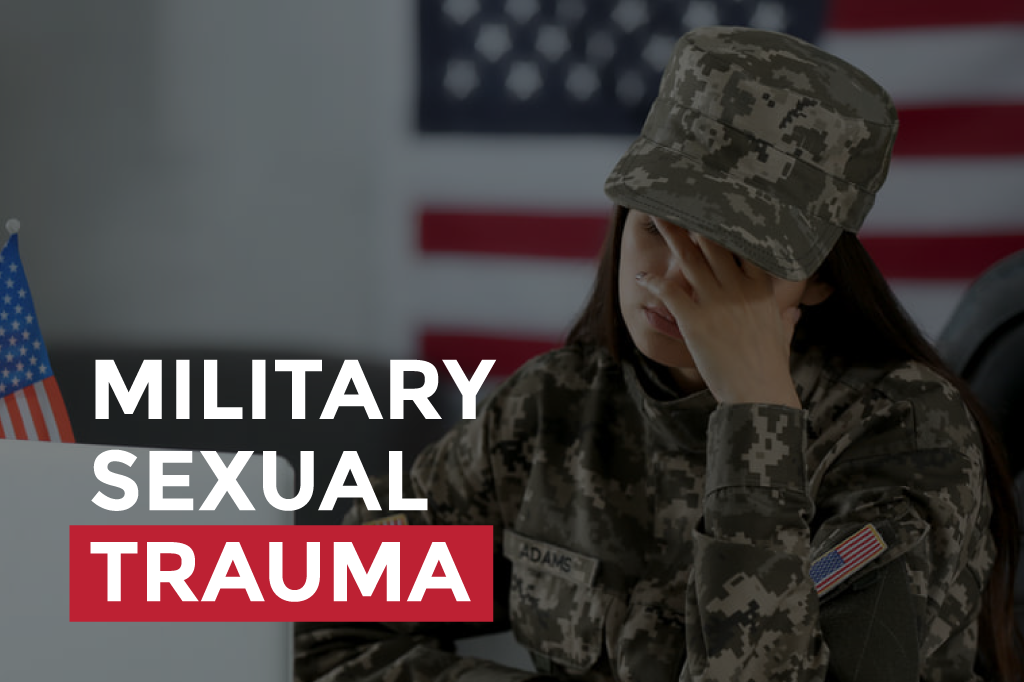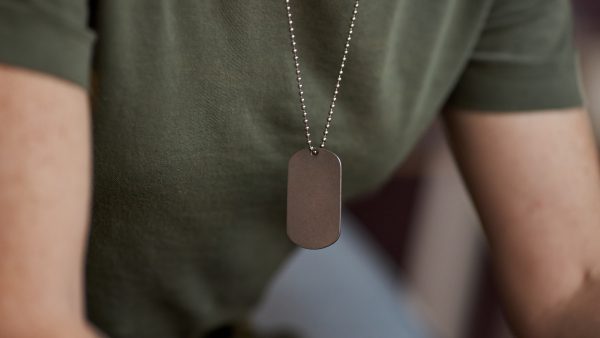Looking for Expert-Level VA Claim Answers?📱Call Us Now! 737-295-2226
If you’ve experienced military sexual trauma (MST) during your service, you are not alone—and you deserve care, support, and the VA benefits you’ve earned.
Military sexual trauma includes sexual assault, harassment, or unwanted sexual contact that occurs while serving in the military. The impact can be lifelong, affecting both mental and physical health.
This guide explains what military sexual trauma is, how the VA recognizes and compensates MST-related conditions, and how to file a VA disability claim for mental health conditions (like PTSD) connected to MST. We’ll also cover key statistics, treatment options, and evidence tips to help you get the rating and resources you deserve.
Summary of Key Points
- Military sexual trauma (MST) includes sexual assault or harassment experienced during military service and can affect veterans of any gender.
- The VA does not assign a specific rating for MST, but veterans can receive disability compensation for mental health conditions (such as PTSD, depression, or anxiety) caused by MST.
- The VA uses “markers” and circumstantial evidence—not just official reports—to establish service connection for MST-related claims.
- Veterans who experienced MST can access free MST-related treatment and counseling through the VA—no proof or VA rating required.
- MST-related conditions can qualify for up to a 100% VA disability rating if symptoms cause total occupational and social impairment.
Table of Contents

Recognizing and Addressing an Underrated Veteran Disability
Military Sexual Trauma (MST) is sexual harassment and or sexual assault experienced by a military service member. It is much more widespread and common than reported and is devastating and often disabling for those who experience it.
Military Sexual Trauma Defined
Military sexual trauma (MST) is a subset of personal trauma and refers to sexual harassment, sexual assault, or rape that occurs in a military setting or during military service. That would include any sexual activity that a veteran is involved with against his or her will.
Examples include:
- Being pressured or coerced into sexual activities, such as with threats of negative treatment for refusal to cooperate, or with promises of better treatment in exchange for sex
- Sexual contact or activities without your consent, including when you were asleep or intoxicated
- Being overpowered or physically forced to have sex
- Being touched or grabbed in a sexual way that made you uncomfortable, including during “hazing” experiences
- Comments about your body or sexual activities that you found threatening
- Unwanted sexual advances that you found threatening
The identity or characteristics of the perpetrator, whether a veteran was on- or off-duty at the time, and whether they were on or off base at the time is immaterial.
The VA states that it is “strongly committed to ensuring that veterans have access to the help they need in order to recover from MST.”
To learn more related to MST: Military Sexual Trauma
Military Sexual Trauma or Sexual Assault: Scope and Statistics
The scope of military sexual trauma is still not fully understood, but it’s clearer than ever that it’s a widespread issue, affecting hundreds of thousands or possibly millions of veterans.
If you have experienced MST, you are nowhere near alone. According to statistics from the 2023 U.S. Department of Defense annual report on sexual assault in the military, the Department received 8,942 reports of sexual assault involving Service members in 2022—up from 8,866 reports received in 2021.
Secondly, it’s estimated that more than two-thirds of all occurrences go unreported. It’s believed that only about one in three survivors chooses to report their assault. The odds are extremely high that you know someone who was the survivor of MST, even if you didn’t experience it yourself.
According to a study in the Journal of Clinical Psychiatry titled “Military sexual trauma in US veterans: results from the National Health and Resilience in Veterans Study,” 7.6% of US veterans screen positive for military sexual trauma, with substantially higher rates among female and younger veterans.
Anyone can experience military sexual trauma, regardless of gender. However, in this study, the overall prevalence was higher among female than male veterans (32.4% vs 4.8%). It was also higher in younger than older veterans (22.8% among veterans aged 18-29 years vs 4.5% among veterans aged 60+ years).
Although there may be some variables (such as prior traumatic experiences) that may increase risk or make an individual more vulnerable to the psychiatric and medical consequences of MST, it’s clear that military sexual trauma is a major healthcare issue that affects both sexes at all ages, and warrants further attention, community VA services (including a phone and text crisis line or safe helpline), and local VA health care.
How MST Impacts Veterans
Like other types of trauma, MST can negatively affect a person’s mental and physical health, even many years later.
According to the study mentioned above in the Journal of Clinical Psychiatry, “Military sexual trauma is associated with elevated rates of several psychiatric conditions and suicidality, reduced functioning and quality of life, and increased mental health treatment use—independent of other sociodemographic, military, and mental health factors. After adjustment for sociodemographic and military characteristics, MST was associated with elevated rates of current major depressive disorder, posttraumatic stress disorder, and generalized anxiety disorder.”
A review of studies called Military sexual trauma as a determinant in the development of mental and physical illness in male and female veterans indicated that military sexual trauma is related to an increase in psychiatric pathology, including posttraumatic stress disorder (PTSD), substance abuse and dependence, depression, anxiety, eating disorders and suicidal behavior. MST is also related to an increase in medical illness, primarily pain-related symptoms involving multiple organ systems, including gastrointestinal, neurological, genitourinary and musculoskeletal.
According to a report from the VA’s Office of Inspector General, women veterans who have experienced military sexual trauma are more than twice as likely as other women veterans to become homeless after leaving the military. About 40% of female MST survivors have experienced homelessness at some point after discharge.
Military Sexual Trauma (MST) can affect every part of a veteran’s life—emotionally, mentally, and physically. Symptoms may appear soon after the trauma or surface years later, often triggered by reminders of the event.
Common MST Symptoms
- Intrusive memories, nightmares, or flashbacks
- Trouble feeling safe or trusting others
- Depression, anxiety, or emotional numbness
- Irritability, anger, or sudden mood changes
- Difficulty sleeping or concentrating
- Physical health issues like chronic pain, stomach problems, or headaches
Many survivors also experience social withdrawal, relationship difficulties, and issues with authority figures. Some turn to alcohol or drugs to numb emotional pain or escape memories.
If you recognize these signs, it’s important to know that healing is possible—and help is available through VA care and veteran-specific support programs.
Diagnosis and Treatment Options for MST
You do not need proof that the trauma was reported when it happened to receive MST-related care or file a VA disability claim. The VA understands that many incidents were never documented at the time.
To confirm a diagnosis, VA clinicians or mental health providers may use two common tools:
- The Sexual Experiences Questionnaire (SEQ) – Screens for sexual harassment during service
- The Sexual Experiences Survey (SES) – Measures sexual assault or unwanted sexual contact
These help identify the impact of trauma, but diagnosis also relies heavily on personal accounts and current symptoms.
Treatment Approaches for MST
The VA offers free treatment for any physical or mental health conditions related to MST—no VA rating or service connection required. Options may include:
- Evidence-based therapy: Cognitive Processing Therapy (CPT) and Prolonged Exposure Therapy (PE) are among the most effective treatments for PTSD and trauma recovery.
- Medication management: For depression, anxiety, or sleep problems related to trauma.
- Group and peer support: Vet Centers and MST peer groups can reduce isolation and provide community among survivors.
- Lifestyle and mindfulness tools: Exercise, journaling, creative expression, and meditation can complement therapy and improve daily functioning.
Every VA facility has a designated MST Coordinator who can help you access counseling, inpatient or outpatient programs, and gender-specific care if desired.
Pro Tip: Treatment is confidential, free, and available to all veterans and service members, regardless of whether you’ve filed a VA disability claim.
(Video): VA MST (Military Sexual Trauma) Claims and How Trauma Affects Veterans’ Mental Health!
How the VA Handles MST-Related Claims
The VA recognizes that military sexual trauma (MST) is deeply personal and often goes unreported when it occurs. Because of that, the VA uses relaxed evidence standards when evaluating claims connected to MST.
Since 2002, VA policy has required that MST-related mental health claims—such as PTSD, depression, or anxiety—be reviewed with extra sensitivity and flexibility.
You don’t need an official military report or police record to qualify.
Instead, the VA allows claims examiners to consider “markers”—indirect signs that a traumatic event occurred. These can include:
- Sudden changes in performance or behavior during service
- Requests for transfer to another unit or duty station
- Deterioration in relationships or attendance
- Anxiety, panic attacks, or depression appearing after the event
- Statements from fellow service members, clergy, or family describing noticeable changes
Claims processors and medical examiners who review MST cases receive specialized training to recognize these markers and evaluate evidence compassionately.
While the VA has improved its approach over the last decade, errors and denials still occur. A 2018 VA Inspector General report found that roughly 1 in 3 MST-related PTSD claims were initially processed incorrectly. This makes it even more important to submit strong supporting evidence and, when possible, a medical nexus letter linking your diagnosis to your service.
Is There a Military Sexual Trauma VA Disability Rating?
There is no VA rating specifically and directly for military sexual trauma. Since MST isn’t directly provided a rating by the VA, some may assume they have no chance of getting the benefits they need.
Thankfully, this isn’t true. The VA doesn’t recognize MST itself as a ratable condition, but you can receive compensation for conditions (such as PTSD) that result from it. Claims for conditions caused by MST are common and more accepted than ever before.
- See our main guide on how the VA rates MST: PTSD MST VA Rating Percentages (0%-100%)
Still, because military sexual trauma is hard to talk about or think about, and there is often shame and stigma associated with it, it’s often overlooked as a disability to pursue.
Don’t let the lack of an official “MST VA rating”—or shame or fear—stop you from getting the support you deserve. Military sexual trauma can be extremely debilitating, and we strongly encourage you to pursue the highest level of benefit you earned while you recover and heal.
How to Get a VA Rating Linked to MST
The Link Between MST and PTSD, Depression, and Anxiety
As detailed above, MST is an underlying cause of or associated with many physical and psychological conditions. Most veterans who have experienced military sexual trauma subsequently suffer from PTSD, depression, anxiety, or other diagnosed mental health conditions. They may experience one or several of these conditions.
While these conditions need not necessarily be permanent, they can cause severe symptoms while you have them, and you deserve to receive the benefits you need as long as you’re dealing with these debilitating conditions.
It’s possible to receive a 100% rating for any of these conditions if they are severe enough, but the most commonly accepted claim is for PTSD. PTSD resulting from MST (informally, “MST PTSD”) is also the condition where you are most likely to receive a 100% VA rating.
There are notable connections between MST and the onset of PTSD. Analyses have revealed MST was more strongly associated with PTSD than other pre-military or post-military trauma. Women with MST have the greatest increased odds of developing PTSD.
Filing Your Claim for PTSD Caused by MST
When filing your claim for MST, ensure that you have the following:
- Current diagnosis from a medical provider of PTSD
- Evidence of an in-service event, illness, or aggravation
- Personal statements written by you with credible supporting evidence (use VA form 21-4138; learn more info on this form here)
- Buddy letters describing the PTSD symptoms related to MST (use VA form 21-10210)
- You need to use Statement in Support of Claim for Service Connection for post-traumatic stress disorder (PTSD) secondary to personal assault (Effective July 2024, there’s a brand-new VA Form 21-0781, statement in support of a claim for mental health conditions due to an in-service traumatic event.)
- A Nexus letter connecting your diagnosis to your military service
Related: How to Complete VA Form 21-0781
With service connection established, the VA will consider the severity of symptoms and then assign a rating. This means that they will look at the full effect of all your symptoms, not just the severity of one or two.
The VA determines a disability rating after reviewing service medical records, MST C&P exam reports, and any other evidence submitted to them in support of the veteran’s claim based upon an established list of criteria. VA examiners will also seek to establish that your symptoms are not due to other issues like substance abuse, medication side effects, or other illnesses.
It’s entirely possible to get a 100% VA rating for PTSD caused by MST. As discussed previously, it used to be harder to get approved at all for PTSD suffered as a result of MST. While that gap has narrowed substantially, it’s still important to have a solid strategy while filing your claim, especially in order to get a full 100% rating.
With PTSD, a 100% rating is assigned when you are considered to be totally socially and occupationally impaired and also experience the majority of symptoms/situations listed below.
- Gross impairment in thought processes or communication
- Persistent delusions or hallucinations,
- Grossly inappropriate behavior
- Persistent danger of hurting oneself or others
- Intermittent inability to perform activities of daily living (like personal hygiene)
- Disorientation to time or place
- Memory loss of names, work, and other relevant knowledge
Fortunately, you don’t have to meet all the subjective symptoms under the rating criteria for PTSD in order to get the 100% disability rating. Your adjudicator will look at the overall effect of the symptoms and give an “occupational and social” rating; however, the final and official mental health rating will be based on the severity of your symptoms.
Mental health disability claims can warrant a rating of 0%, 10%, 30%, 50%, 70%, or 100%.
Additional Resources on MST
In some cases, MST-related PTSD may be so severe that it’s difficult or impossible for you to work. If your military sexual trauma-related PTSD interferes with maintaining employment, you may qualify for a 100% disability rating even if your other symptoms don’t rise to the 100% level. Unemployability is another way to get a 100% rating.
The good news is that PTSD is one of the easiest VA claims to win. It is among the top 4 claims approved by the VA. In fact, 13.3% of all veterans who have been granted a VA disability claim for Mental Health, including PTSD, have received a 100% rating—much higher than most other disability claims.
How to Prove MST for a VA Disability Claim
Even without direct documentation, it’s absolutely possible to prove that MST occurred and receive the benefits you deserve. Here’s what the VA looks for when reviewing your claim:
1. A Current Mental Health Diagnosis
You must have a documented mental health condition such as PTSD, depression, or anxiety from a qualified provider.
2. An In-Service Event or “Marker”
This can be an official report, but often it’s circumstantial evidence like behavioral changes, counseling notes, or buddy statements showing how your service experience affected you.
3. A Medical Nexus (Link to Service)
A nexus letter from a licensed provider—especially one familiar with VA claims—can directly connect your current diagnosis to your MST experience. The letter should state that your condition is “at least as likely as not” caused or aggravated by events that occurred during military service.
Supporting Evidence Examples
You may also include:
- Personal statements (VA Form 21-0781 for PTSD or mental health due to MST)
- Buddy letters (VA Form 21-10210)
- Counseling or medical records from civilian or military providers
- Journals or personal correspondence describing the incident or aftermath
- Performance evaluations showing sudden decline
- Requests for duty transfers or changes after the incident
The VA now trains adjudicators to treat this kind of indirect evidence with the same seriousness as an official report.
If your MST claim was denied, you can appeal or file a Supplemental Claim with new and relevant evidence—especially if your initial application lacked a medical nexus or enough supporting documentation.
Pro Tip: Many veterans win their MST-related claims after appealing with additional medical evidence or a well-written nexus letter. Persistence pays off.
Other Benefits and MST Resources
Veterans may be eligible for specific, free MST-related care. Due to the relaxed eligibility rules associated with MST, many of the standard requirements are excused.
The VA provides free treatment for any physical or mental health conditions related to MST without requiring documentation of the MST experience or a VA rating. The VA also provides MST-related outpatient counseling through its Vet Centers.
There’s an MST Coordinator at every VA health facility to serve as a contact for MST-related issues. They’re there to assist veterans in getting the care they need for MST and to answer all of your questions.
Many facilities have separate programs for men and women, for cases in which the veteran who experienced military sexual trauma is uncomfortable being treated by someone of the opposite sex. Be sure and speak up at the time of scheduling if this applies to you.
As with other disabilities, it’s possible to receive monthly non-taxable compensation from the VA for conditions linked to MST if it’s service-connected. Other benefits available are:
- Health care
- 10-point hiring preference for federal employment
- Pension
- Caregiver program
- Career services
- Education assistance
- Home loan guaranty
- Insurance
Beyond MST Mobile App
The VA offers this free, secure, and private self-help mobile app created specifically to support the health and well-being of survivors of MST. The app has over 30 specialized tools and other features to help MST survivors cope with challenges, manage symptoms, improve their quality of life, and find hope. Users don’t need to create an account or be in treatment to use the app. Personal information entered in the app is not shared with anyone, including the VA.
Also see: Help for Veterans Distressed by Recent Events Related to MST and Violence Toward People of Color. This covers suggestions and resources for connecting with care for MST survivors and others feeling pain and distress due to events related to MST (as well as violence toward people of color).
To learn more about help with treatment and health care related to experiences of MST, please contact your local VA medical center and ask to speak to the MST Coordinator.
Can I Sue the Military for MST?
Yale Law School reports several lawsuits against the VA related to military sexual trauma.
Richard Oppel, Veterans Agency Is Sued Over Handling of Trauma Cases, The New York Times, April 30, 2014
Mary O’Leary, Yale Law School suit alleges Veterans Administration biased against sex assault victims with PTSD, New Haven Register, April 30, 2014
PRO TIP: It’s possible to get a 100% disability rating if you’ve experienced MST. It’s possible to receive a 100% rating for any of the associated mental health conditions if they’re severe enough, but the most commonly accepted claim is for PTSD.
VA Claims Insider Supports Survivors of Military Sexual Trauma

Military sexual trauma can leave lasting scars, but healing and justice are possible. Whether your trauma happened last year or decades ago, the VA recognizes MST as a serious service-related experience that can entitle you to treatment, compensation, and long-term support.
You do not need to face this process alone. VA Claims Insider’s compassionate team—many of whom are veterans themselves—can guide you step-by-step through your MST-related VA claim and help ensure you receive every benefit you deserve.
About VA Claims Insider

- VA Claims Insider is the #1 most trusted name in VA disability claims.
- Work directly with a VA claims coach who can educate you through the claims process.
- 25,000+ disabled veterans have served in our membership programs since 2016.
- 30% average rating increase for veterans who complete our #1 rated Elite program.
- 4.7/5.0 average rating out of 5,500+ total reviews; over 4,500 5-star reviews.
FAQs | Frequently Asked Questions
What is military sexual trauma (MST)?
Military sexual trauma (MST) refers to sexual harassment, sexual assault, or unwanted sexual contact that occurs during military service. It can affect service members of any gender or branch.
Can I get VA disability for military sexual trauma?
Yes. While MST itself is not rated, veterans can receive VA disability compensation for conditions caused by MST, such as PTSD, depression, or anxiety.
How does the VA verify MST-related claims?
The VA uses “markers” such as behavioral changes, transfer requests, or medical and counseling records as circumstantial evidence since MST is often unreported at the time.
What benefits can I get if I experienced MST?
Eligible veterans may receive disability compensation, free MST-related health care, counseling, and access to specialized MST coordinators at every VA facility.
Can MST-related PTSD qualify for a 100% VA rating?
Yes. If PTSD from MST causes total social and occupational impairment, the veteran may qualify for a 100% VA rating—or TDIU if they can’t maintain employment.
Do I need to prove my assault or harassment to the VA?
No direct proof is required. The VA recognizes that MST is often unreported, and will consider other evidence or statements that support your claim.
Content Reviewed By

Quality Assurance Team
The Quality Assurance (QA) team at VA Claims Insider has extensive experience researching, fact-checking, and ensuring accuracy in all produced content. The QA team consists of individuals with specialized knowledge in the VA disability claims adjudication processes, laws and regulations, and they understand the needs of our target audience. Any changes or suggestions the QA team makes are thoroughly reviewed and incorporated into the content by our writers and creators.
About the Author

Kelly Olone
Kelly Olone is a military spouse who earned her degree in Psychology from Florida International University. After working in the non-profit sector for several years, she turned to her passion for writing. She aims to contribute to a better understanding of the valuable benefits that veterans deserve. As a mom, Kelly navigates the delicate balance between deadlines and bedtime stories with finesse.



